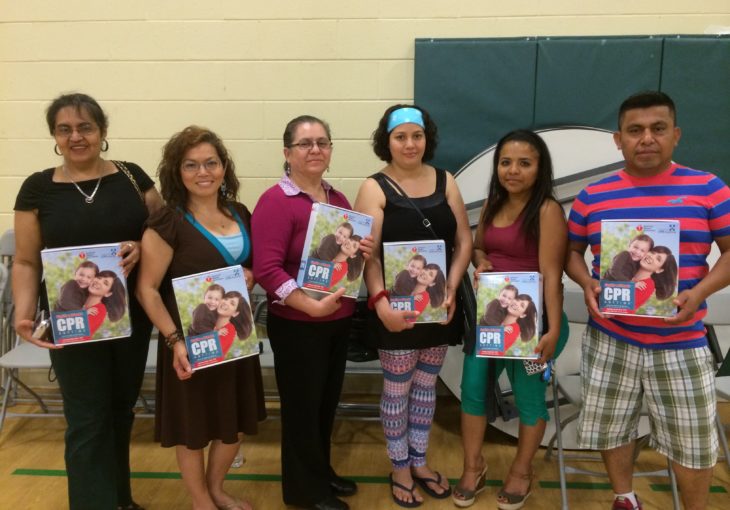The American Heart Association in Richmond recently teamed up with La Casa de la Salud (LCS) to improve the rate of bystander CPR among the area’s growing Hispanic and Latino community. LCS is a local non-profit organization dedicated to improving the health, well-being and access to resources for this at-risk population.
“Latinos and Hispanics are at a higher risk for heart disease, and they are also 30 percent less likely to receive bystander CPR in a cardiac emergency, making them less likely to survive,” says Antonio Villa, CEO of LCS. When a person has a cardiac arrest, survival depends on immediately receiving CPR from someone nearby. CPR, especially if performed immediately, can triple a cardiac arrest victim’s chance of survival.
LCS utilizes the community health worker (CHW) model to educate community members about health issues and available resources. The CHWs are primarily Latino or Hispanic, have a close understanding of the community they serve, and receive core training and continuing education. As a result of a grant from the American Heart Association, LCS added CPR training and certification to the CHWs’ curriculum, and a staff member became a certified CPR trainer to facilitate the trainings. In addition, the funding also helped to equip the CHWs with Mini-Annie resuscitation manikins so they can train others in Hands-Only CPR at community events.
Hands-Only CPR has been shown to be as effective as conventional CPR for cardiac arrest when it occurs at home, at work or in public. Hands-Only CPR has two steps performed in this order: first, call 911 when you see a teen or adult suddenly collapse, and then push hard and fast in the center of the chest to the beat of a familiar song that has 100 to 120 beats per minute.
Dionne Henderson, Community Impact Director for the American Heart Association in Richmond, Virginia worked closely with LCS on this strategy and says, “Often bystanders do not step in and take action during a cardiac emergency, because they do not feel comfortable or are uncertain on what to do. This approach makes sense, because community health workers have trusting relationships in the community, can deliver the training in Spanish or English and hold the training at convenient and relevant locations.”
Henderson adds, “Partnering with LCS is a step in the right direction to achieving our overall goal of eliminating health disparities around heart disease and stroke particularly in African American and Hispanic communities.”
For free Hands-Only CPR resources and to watch short training videos in English and Spanish, visit heart.org/handsonlycpr. To learn more about the work we are doing in the Richmond community, visit www.heart.org/Richmond.
